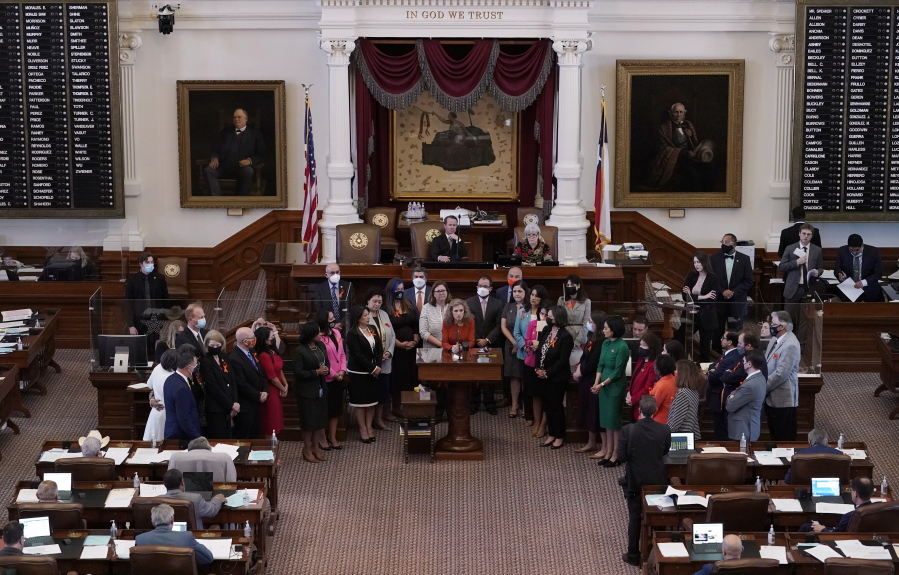WASHINGTON — Abortion providers in Texas are asking the Supreme Court to prevent enforcement of a state law that would allow private citizens to sue anyone for helping a woman get an abortion after about six weeks of pregnancy.
The request to the court comes after a panel of appellate judges refused to block enforcement of the law before it takes effect on Wednesday.
If it goes into effect, the law would rule out 85 percent of abortions in Texas and force many clinics to close, the providers and abortion rights advocates supporting them said in an emergency filing with the high court on Monday. For now, Planned Parenthood clinics in Texas have stopped scheduling abortions beyond six weeks from conception, spokeswoman Sarah Wheat said.
“Due to the new law, our health centers are not able to provide abortions to patients after tomorrow unless they meet these extreme new restrictions,” she said.
At least 12 other states have enacted bans on abortion early in pregnancy, but all have been blocked from going into effect.
The Texas law, signed by Gov. Greg Abbott in May, would ban abortion in the nation’s second-biggest state after a fetal heartbeat is detected, which can be as early as six weeks of pregnancy and is before many women even know they are pregnant.
Instead of setting criminal penalties, as other abortion restrictions do, it asks private citizens to enforce the ban by suing doctors or anyone who helps a woman get an abortion. Among other situations, that would include anyone who drives a woman to a clinic to get an abortion. Under the law, anyone who successfully sues another person would be entitled to at least $10,000.
The enforcement scheme makes it difficult to challenge in court because it is harder to know whom to sue. In other states, six-week abortion bans would be enforced by government officials, allowing plaintiffs to sue state officials responsible for enforcing the law.
The law squarely conflicts with nearly 50 years of Supreme Court decisions in favor of abortion rights dating back to the Roe v. Wade decision in 1973, the providers argued in their high court filing.
Those rulings generally prohibit states from regulating abortions before the fetus can survive outside the womb, typically around 24 weeks of pregnancy.



